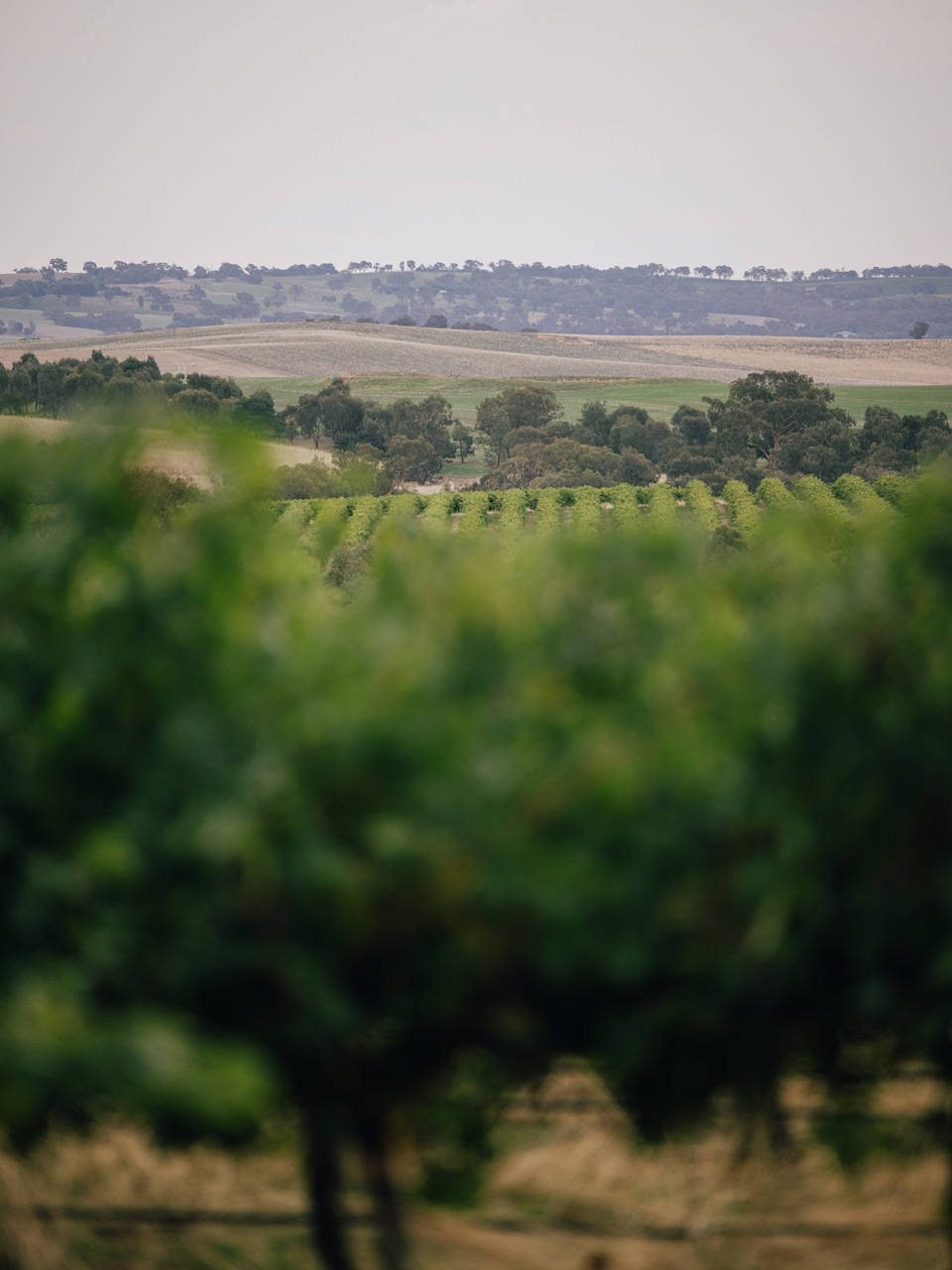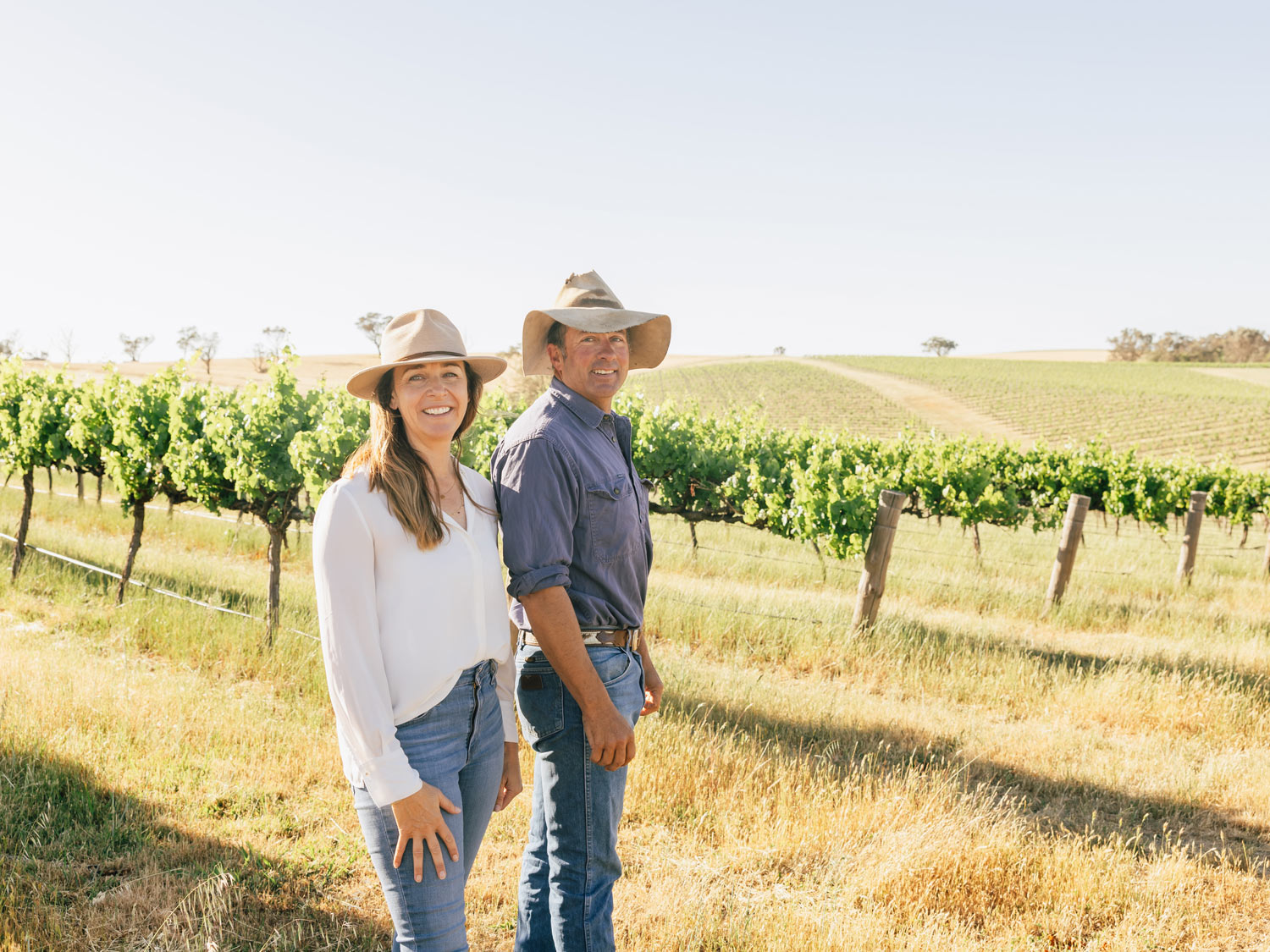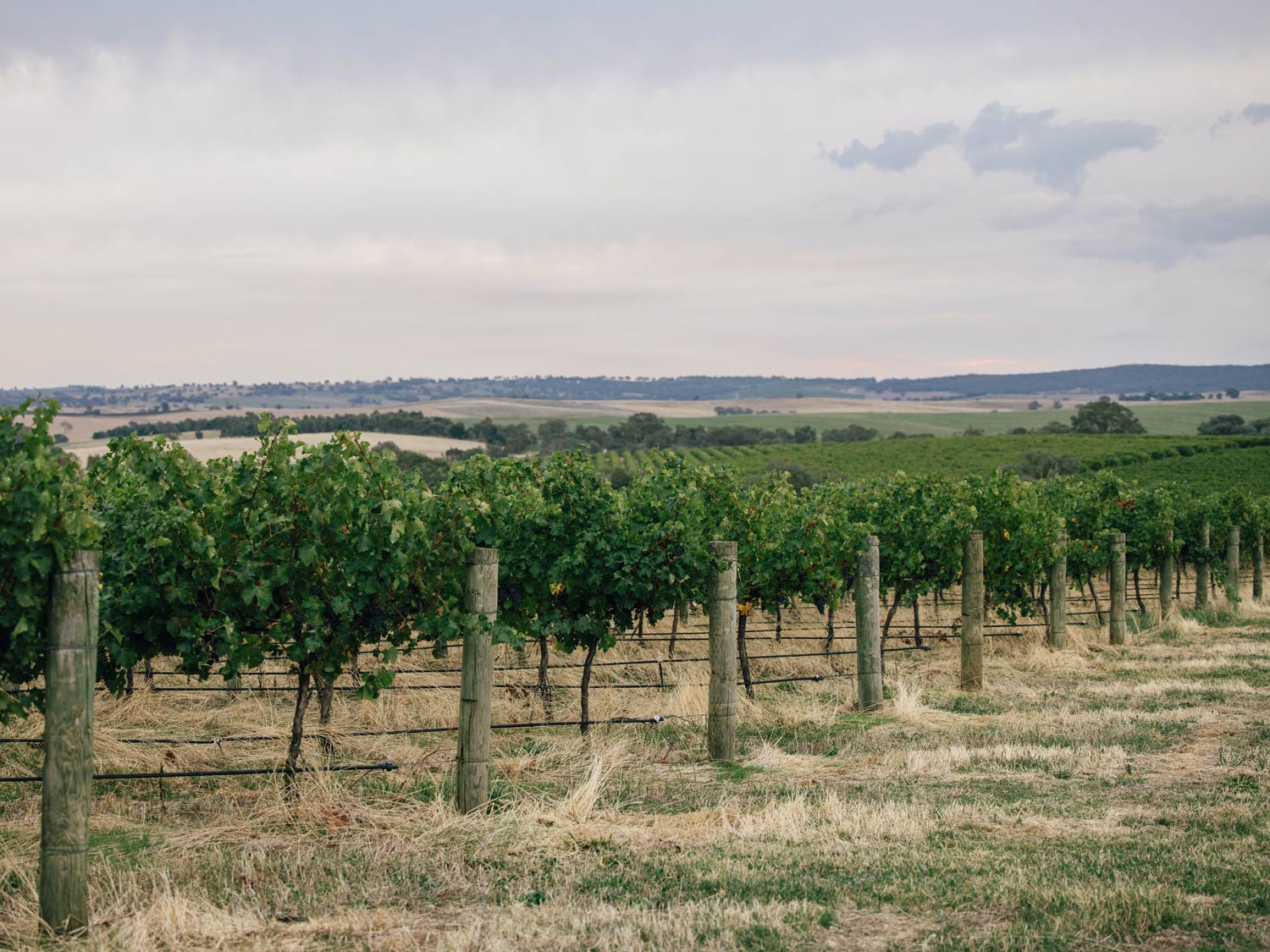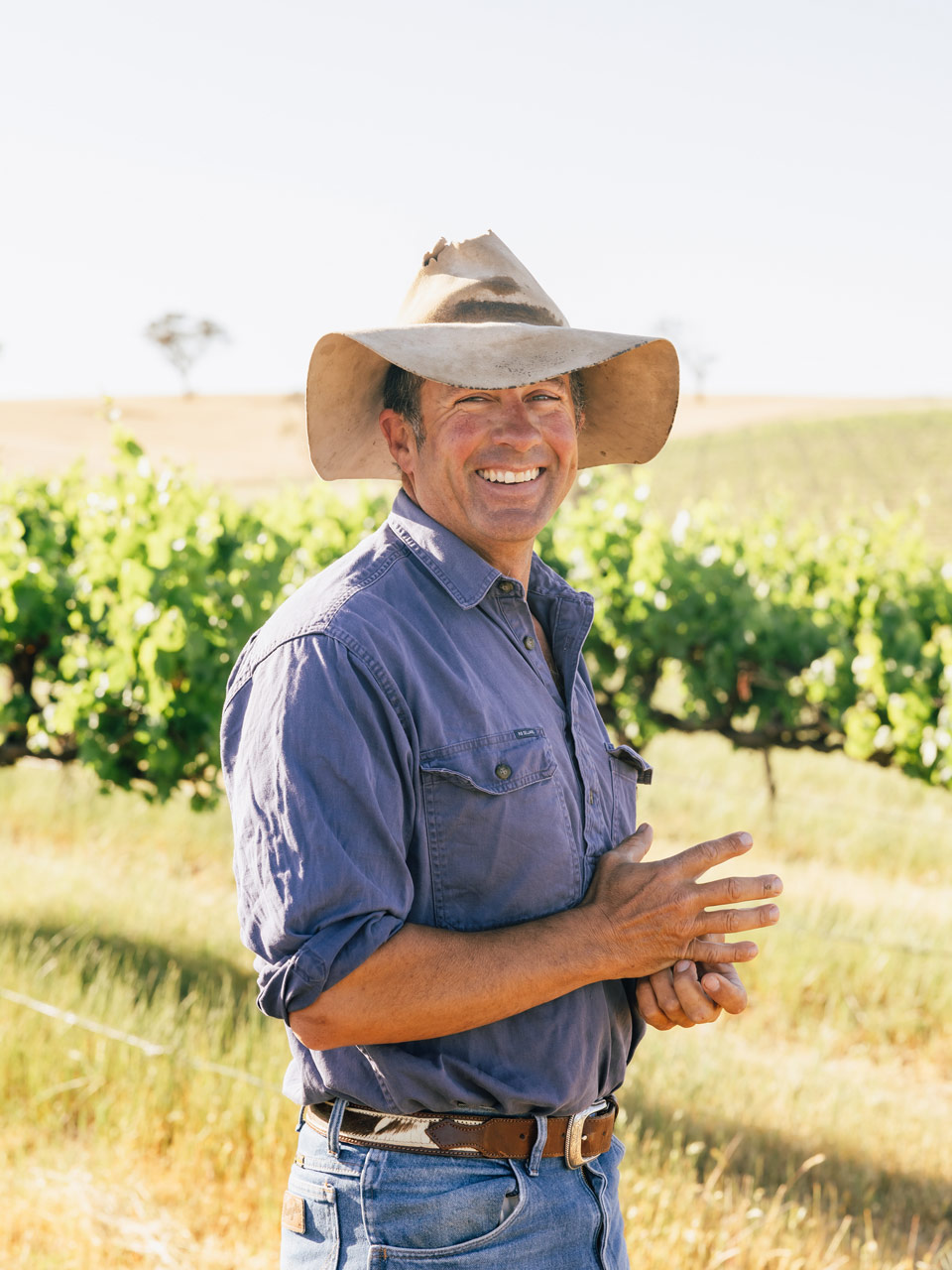In the heart of the Hilltops region, Barwang Vineyard emerges as a testament to innovation and resilience in Australian viticulture. Founded in 1969, the site was purchased in 2021 by the Bowman family, whose farming roots in the area span six generations, and is led today by James Bowman with vineyard manager Scott Douglas. The vineyard grows not only its own esteemed Barwang wines but also plays a pivotal role as a supplier of premium grapes to notable labels including Brokenwood, Hungerford Hill, Lerida Estate, Nick O’Leary, Collector, Eden Road, and more. At a time when the industry sees many moving away from vineyard ownership, the Bowman family’s foray into grape growing exemplifies a bold faith in the future of viticulture, integrating this new challenge into their diversified farming enterprise. Their approach showcases a thoughtful stewardship of a significant 100 hectare site, underpinned by sustainable practices such as mixed farming, composting, mulching, and native tree regeneration.
“When Barwang was listed for sale in 2021 all the prospective buyers lined up to purchase this vineyard with a view of pulling the whole vineyard out,” recalls James Bowman. But the Bowman’s made the decision to respect and nurture this important vineyard through a sustainable model as part of a larger farming enterprise.
When the opportunity to purchase Barwang from the McWilliam’s wine family arose, James jokingly says he “bought a farm and inherited a vineyard.”
The Bowman family, local farmers for six generations, have woven a new narrative into the rich tapestry of their agricultural legacy through the recent stewardship of Barwang Vineyard. “Taking on Barwang was a natural extension of our commitment to the land,” James Bowman reflects.
“The Hilltops region is classified as a cool climate region, typical continental climate when nights are always cool in summer. That diurnal range is a significant factor in the long slow ripening, especially of the classic red varieties that typically gives Hilltops wines their flavour depth and balance.”
The 2022 vintage was the first vintage in 30 years to see Barwang’s grapes on the open market. The interest from the winemaking community to purchase the grapes, and encouragement to bring Barwang back was the tipping point. James decided to use the same principles that have worked for his farming family for generations; create a quality product, build solid business relationships, and find the market to sell it.
Bowman and Douglas have focused on compost, mulching, cover cropping, and organic fertilizers as strategies to improve soil health.
Innovation extends beyond soil management, with the vineyard’s transition into solar-power showcasing their forward-thinking ethos. This, together with the tree regeneration program and the integration of livestock for natural weed control and soil enrichment
The care in vineyard management intersects with the inherent topography to create wines with a distinctive sense of place. “Our soils, deep red, decomposed granite clays impregnated with basalt, imbue our wines with a unique minerality,” James Bowman explains.
“The Hilltops region is classified as a cool climate region, typical continental climate when nights are always cool in summer. That diurnal range is a significant factor in the long slow ripening, especially of the classic red varieties that typically gives Hilltops wines their flavour depth and balance.” The vineyard’s flagship shiraz and cabernet sauvignon embody the classic profile of the Hilltops region. “We aim for a full-bodied red that echoes the robustness of our land,” Bowman asserts, highlighting a deliberate choice to harness the vineyard’s unique attributes to produce wines with bold character and longevity.
Barwang Vineyard faces the dual challenges of navigating the complexities of a changing climate and the fluctuating dynamics of the wine industry. Acknowledging these hurdles, Bowman emphasizes, “Plans to plant more malbec and exciting Mediterranean varieties suited to drier conditions, such as fiano are in place.” This forward-thinking outlook hints at a future where Barwang not only overcomes its challenges but also sets new benchmarks for sustainable viticulture in the Hilltops region and beyond.
The Bowman’s grazing practices of rotational grazing are being applied to the vineyard. They keep on top of weeds, grasses and add additional carbon to the soil through droppings. “A recent ‘Yoga in the Vines’ event with ‘3 Bush Seeds’ saw 500 ewes watching in surprise a bunch of yogis practicing in their 5pm grazing position.”






